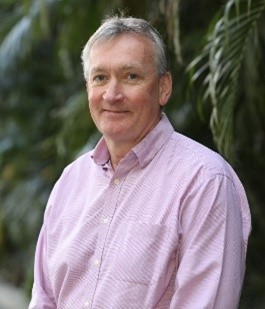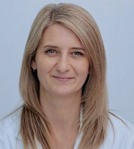International collaboration to fund innovative research into treating paediatric leukaemia, and CAR T-cell therapy for lymphoma and myeloma
Thursday, June 23 2022
- Research program accelerates laboratory findings into actual blood cancer treatment
- Two Australian researchers set to receive grant funding to improve treatment outcomes for blood cancer patients
- Leukaemia Foundation and Snowdome Foundation continues international research collaboration with USA’s The Leukemia & Lymphoma Society
Research into improving outcomes for children with acute lymphoblastic leukaemia (ALL) and improving CAR T-cell therapy for lymphoma and multiple myeloma patients are the two latest projects to be funded by the USA’s The Leukaemia & Lymphoma Society (LLS), Snowdome Foundation and the Leukaemia Foundation through the Translational Research Program (TRP).
The special Australian stream of the TRP program funds up to two projects focused on blood cancer research from investigators working in Australia, Australian investigators working in other countries, or to Australian and non-Australian researchers jointly applying.
The TRP funds new and innovative research that proposes novel approaches to the prevention, diagnosis, or treatment of blood cancers and shows high promise for translating basic biomedical knowledge to clinical application.
New South Wales’ Professor Richard Lock and Victoria’s Associate Professor Jane Oliaro are the successful applicants for the 2022 round as part of the program.
Leukaemia Foundation CEO Chris Tanti welcomed the opportunity to again unite with LLS and Snowdome Foundation to support leading Australian blood cancer researchers to undertake innovative work that could transform treatment on a global scale.
“Accelerating research to achieve rapid advancements in blood cancer treatment is a key priority of the Leukaemia Foundation. We are pleased to be able to fund these projects and look forward to seeing their research translate into improved results for Australians living with ALL, lymphoma and multiple myeloma,” Mr Tanti said.
“Investment in researchers to accelerate advances in treatment and next generation therapies are key to Australians both surviving these diseases, leading their best possible quality of life and achieving our goal of zero lives lost to blood cancer by 2035.”
Snowdome Foundation CEO Kirstee Macbeth said the Foundation was proud to support the next generation of Australian researchers.
“We are thrilled for these two Australian researchers, whose successful submissions were amongst only ten granted globally. The calibre of the applicants was outstanding, and these projects certainly show Australia is at the forefront of international blood cancer research,” Ms Macbeth said.
“Snowdome Foundation is immensely proud to have funded these grants for the fourth year, and to do so with Australian partner, Leukaemia Foundation. The research projects aim to improve the outcomes of those diagnosed with blood cancer and work towards a cure, something we are both passionately committed to.”
LLS Chief Scientific Officer Lee Greenberger said the international collaboration had the potential to benefit blood cancer patients on a global scale.
“The Leukemia & Lymphoma Society (LLS) is pleased to continue funding the work of Australian researchers through the Translational Research Program. Our long-standing relationship with Snowdome Foundation and the Leukaemia Foundation to support these accomplished investigators has the potential to improve treatment and outcomes for patients living with blood cancer around the world. By partnering together, we can broaden the scope of research we are able to fund.”
The Leukaemia Foundation’s investment in research focuses on innovation in diagnosis, treatment and quality of life, right across the blood cancer spectrum. More on the Translational Research Program here.
The successful funding candidates are:
Professor Richard Lock, Head of the Blood Cancers Theme, Group Leader of Leukaemia Biology Group, Children’s Cancer Institute
Project Summary – Therapeutic targeting of T-cell acute lymphoblastic leukemia using an AKR1C3-activated prodrug
Acute lymphoblastic leukaemia (ALL) is the most common type of cancer in children, and sadly remains one of the most common causes of death from disease. Each year in Australia, around 213 children are diagnosed with ALL, with the greatest number of children diagnosed between the ages of two and four.
ALL in children can be broadly divided into two forms – B-lineage and T-lineage. The latter is an aggressive malignancy that is exceptionally difficult to cure after relapse.
Professor Richard Lock and his team at the Children’s Cancer Institute in Sydney are investigating the effectiveness of a “prodrug” (a medication that converts into an active form once it enters the body), in combination with current standard-of-care drugs to treat children when they relapse with ALL or do not respond to treatment.
The hope is this project will lead to the development of better, personalised approaches to improve the treatment and outcomes for young patients with T-lineage ALL.
A/Professor Jane Oliaro, Group Leader, Centre of Cancer Immunotherapy/Chief Scientist, Centre of Excellence in Cellular Immunotherapy, Peter MacCallum Cancer Centre
Project Summary – Making CAR T-cell therapy more effective for aggressive lymphoma and multiple myeloma
To date, CAR T cell therapy has been effective in improving outcomes for some previously incurable blood cancers. However, despite the promise of this therapy, some patients fail to respond to CAR T-cell therapy, or relapse following treatment and other blood cancers haven’t responded as well to CAR T-cell therapy. There is great need to improve these response rates.
Jane’s project will focus on improving CAR T-cell effectiveness by incorporating it with a small molecule drug that can directly kill the cancer cells and potentially boost the anti-cancer activity of the CAR T-cells.
Jane and her team will leverage their expertise in basic and preclinical research to investigate the potential of this combination therapy in dramatically improving CAR T-cell therapy outcomes for patients with lymphoma and multiple myeloma.
– END –
About the Leukaemia Foundation: The Leukaemia Foundation stands with Australia to help cure and conquer blood cancer – with care. Together we are attacking every blood cancer, from every direction, in every way we can. We stand beside every Australian to be their voice and their someone-to-turn to, fighting to get them access to the best care. We also accelerate research that is delivering rapid advancements in blood cancer diagnosis and treatments. Plus, we provide services and support that empower people living with any blood cancer to live well after diagnosis. You can learn more about the Leukaemia Foundation and blood cancer at leukaemia.org.au.
About Snowdome Foundation: Snowdome has a singular vision to give every Australian blood cancer patient the best opportunity for a cure. We do this by funding world-best, Australian and international translational research, hastening patient access to next-generation treatments so that those diagnosed with blood cancer can live longer, better lives.
About Richard Lock: Professor Richard Lock is an internationally recognised leader in experimental therapeutics and preclinical drug testing in paediatric cancer. He is Head of the Blood Cancers Theme and Group Leader of the Leukaemia Biology Group at Children’s Cancer Institute. He was recruited to the Institute in 1998 from the position of Associate Professor, Department of Medicine and Department of Biochemistry and Molecular Biology, University of Louisville, USA.
Having already established a reputation for his research into the cell cycle and mechanisms of cell death (apoptosis), Richard set his sights on investigating the clinical problem of drug resistance in childhood cancer. ‘I wanted to take the opportunity to use my skills and training to focus in on a major unmet clinical need,’ he explains.
As well as investigating how cancer cells become resistant to anti-cancer drugs, Richard’s research focuses on developing new drugs for the treatment of children with high-risk leukaemia – children who tend to respond poorly to conventional chemotherapy. His team is credited with establishing the world’s most clinically relevant experimental model of acute lymphoblastic leukaemia (ALL). This model is used extensively to test novel therapies and advance new drugs into the clinic and has led to the team’s involvement in a number of international drug testing groups, including the US National Cancer Institute’s Pediatric Preclinical Testing Consortium.
An NHMRC Senior Research Fellow, Richard also heads the Preclinical Drug Testing Core team for the in theZero Childhood Cancer Program, jointly led by Children’s Cancer Institute and Sydney Children’s Hospital, Randwick.
About Jane Oliaro: A/Prof Jane Oliaro is a Group Leader in the Centre for Cancer Immunotherapy and Chief Scientist for the Centre of Excellence in Cellular Immunotherapy Translation Laboratory at the Peter MacCallum Cancer Centre in Melbourne, Australia.Jane completed a BSc (Hons) at Monash University in Melbourne, a PhD at Massey University in New Zealand, followed by postdoctoral training in France (INSERM, Montpellier) and Australia (Peter Mac). Jane’s research program uses a range of immune-based assays, genetic screening and preclinical models to dissect the complex interplay between the immune system and cancer, with a particular focus on tumor immune evasion and resistance to immunotherapies such as checkpoint blockade and CAR-T cell therapy.
She also leads a preclinical program focused on the development of novel cell-based immunotherapies for translation into pilot clinical trials through the Centre of Excellence in Cellular Immunotherapy.
Subscribe to Leukaemia Foundation news and updates
Subscribe hereLast updated on July 29th, 2022
Developed by the Leukaemia Foundation in consultation with people living with a blood cancer, Leukaemia Foundation support staff, haematology nursing staff and/or Australian clinical haematologists. This content is provided for information purposes only and we urge you to always seek advice from a registered health care professional for diagnosis, treatment and answers to your medical questions, including the suitability of a particular therapy, service, product or treatment in your circumstances. The Leukaemia Foundation shall not bear any liability for any person relying on the materials contained on this website.
